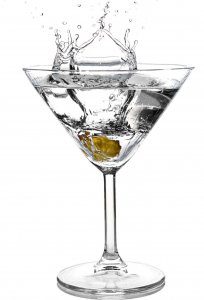Is Alcohol Muscle’s Enemy? This is What You Need to Know About Their Relationship.
When people think of how alcohol affects the body, many only believe it’s only detrimental to the liver. However, did you know that alcohol can also affect your muscles? Yes, the soft tissues in your body responsible for your movement, and even your cardiovascular system, can also suffer from the effects of alcohol. Before we look into how alcohol affects our muscles, we need to look into its ingredients.
What Is Alcohol Made Of?
There are different forms of alcohol. There is beer, wine, whiskey, and much more. Each form of alcohol may contain different ingredients, but the one thing they all share is the fact that they’re made from fermented ingredients.
Alcohol is either ethyl alcohol or ethanol and is considered a psychoactive drug. Surprisingly enough, your average beer is made up of 90% water, with the rest of the fluid being made up of fermented grains, yeast, and hops.
 Another alcohol type in question, wine, is mostly made up of grapes that were fermented. Yeast, sugar, and certain acids are also used in the process of making wine.
Another alcohol type in question, wine, is mostly made up of grapes that were fermented. Yeast, sugar, and certain acids are also used in the process of making wine.
The yeast, mostly found naturally in the air, helps break down the sugar in the wine. The fermentation process is what makes the grapes alcoholic.
How Can Alcohol Affect Muscles?
One thing many adults wonder is whether or not alcohol affects their muscles. Everyone from athletes to casual gym-goers wonders if their progress will be impeded after consuming alcohol.
You don’t have to be a bodybuilder to wonder if alcohol will affect your muscles. You could be an older person wondering if alcohol will eventually make you frail. These are all legitimate questions to ask, and you’re not alone in wondering how it all works.
Unfortunately, research is not on the side of those hoping they can continue their daily alcohol consumption, as studies have shown how consumption of alcohol can affect muscle gains.

For those trying to build muscle, that means the synthesis of your muscles’ protein is impaired. Even if you’re not trying to gain muscle, too much alcohol consumption can harm the muscles in the long run.
Too much alcohol consumption can keep calcium from reaching your muscle cells. Calcium is important for the muscles as it is the mineral they use to keep your muscles from clotting and even helps your most important muscle, your heart, to beat.
Is It Possible To Lose Or Gain Weight With Alcohol?
Society as a whole can’t seem to come to a consensus as to whether or not alcohol can help you lose weight, besides anecdotal evidence, but as far as the medical community is concerned: they don’t seem to know either.
 It’s difficult to study the effects of alcohol and its relation to weight loss because the average person in the general population has other unhealthy habits on top of alcohol consumption like smoking.
It’s difficult to study the effects of alcohol and its relation to weight loss because the average person in the general population has other unhealthy habits on top of alcohol consumption like smoking.
Since alcohol is an enemy to your muscles in excess, you’ll have issues with your fitness routine and slower healing of muscles which will keep you sedentary. A sedentary lifestyle leads to weight gain.
However, even if you consume nothing but healthy meals all day, consuming alcohol can get in the way of weight loss if you’re trying to lose weight.
If you’re going for a low-carbohydrate diet, then your goal should be for your body to rely more on its fat reserves as its fuel source.

Unfortunately, drinking alcohol can get in the way of that process of burning fat. When you consume alcohol, your body will use that instead as a source of energy while your fat reserves continue to store.
Of course, there’s nothing wrong with the occasional consumption of alcohol. However, if your main goal is to lose weight, then you’ll have to make some lifestyle changes around your alcohol consumption.
You’ll have to understand that since you’re taking in the occasional late-night drink, you should most likely reduce your fat intake as all that will do is get stored in your fat reserves. That means you’re going to have to consume alcohol in moderation.
That can be said about anything in life. Even if broccoli sounds like a healthy meal, you’re still consuming a cruciferous vegetable that can wreak havoc on your gastrointestinal system if you consume more than the recommended amount.
Keep that same energy with alcohol. You’re allowed to have the occasional drink or two, but you have to keep in mind the effects it will have on your body. It will get worse if you consume over the recommended amount, but does alcohol deserve all the negative stigma? Is there any benefit to alcohol consumption for your body?
Does Alcohol Have Any Benefit To The Body?
 Just because there is a lot of negativity surrounding alcohol consumption doesn’t mean it isn’t safe or even beneficial to your health, in moderation.
Just because there is a lot of negativity surrounding alcohol consumption doesn’t mean it isn’t safe or even beneficial to your health, in moderation.
There’s a reason why you often see people tout wine as a healthy option for your heart: because it is.
Wine has been found to help with your insulin sensitivity and even helps prevent the formation of blood clots that could lead to a heart attack or stroke. Remember that the heart is the most important muscle in your body, and alcohol, in moderation, can help protect it. 
One of the main reasons why wine is great for your heart is because it is antioxidant-rich.
That means it raises the HDL (or good cholesterol) in your blood while helping keep your blood pressure down, but what if red wine isn’t the type of alcohol you like to consume?
Fortunately, beer (again, in moderation) can have some health benefits as well. One of the more obvious benefits of beer is the fact it helps reduce your stress.
That’s why people sit down at the end of a long stressful day with a can of beer to cope. If you allow yourself to get too stressed, then you’re putting yourself at a higher risk of high blood pressure, type 2 diabetes, fertility issues, and tension headaches.
If you consume beer in moderation to help reduce your stress, thus reducing your risk of these stress-related health issues, then what’s one beer?
It’s always important to remember, as mentioned many times, to consume alcohol in moderation alongside a healthy diet. Alcohol is tricky as too much can cause health issues and be the main antagonist in the story of your muscles, but just enough can help you live a healthier life. In the end, you have to do what you feel is best for your body.
REFERENCE:
- https://courses.lumenlearning.com/boundless-ap/chapter/muscles-of-the-upper-limb/
- https://academic.oup.com/alcalc/article-abstract/26/5-6/505/138341
- https://ajph.aphapublications.org/doi/abs/10.2105/AJPH.77.10.1324
- https://www.sciencedirect.com/science/article/pii/S2212977415000022
- https://pubs.niaaa.nih.gov/publications/arh23-4/250-255.pdf


